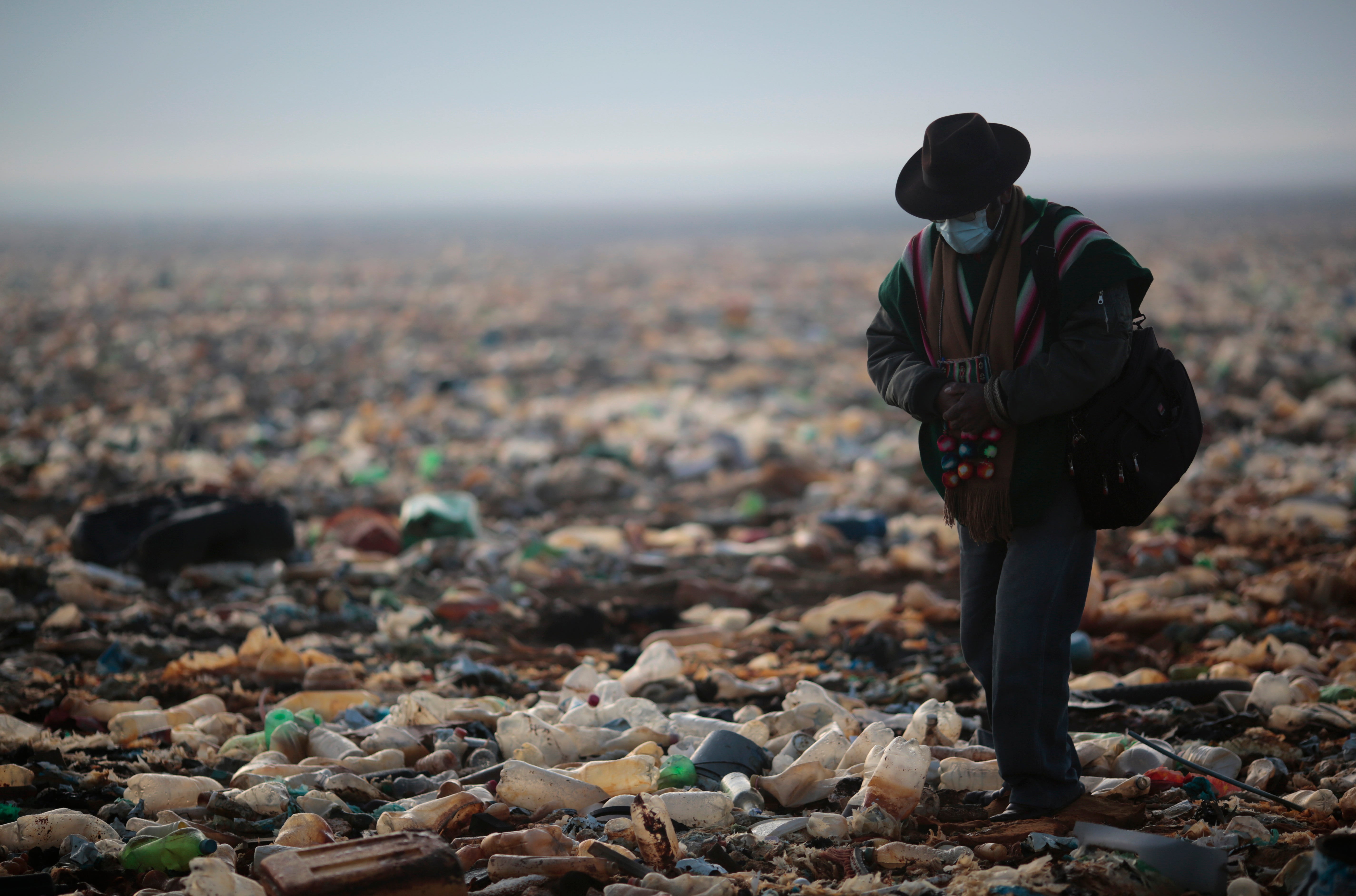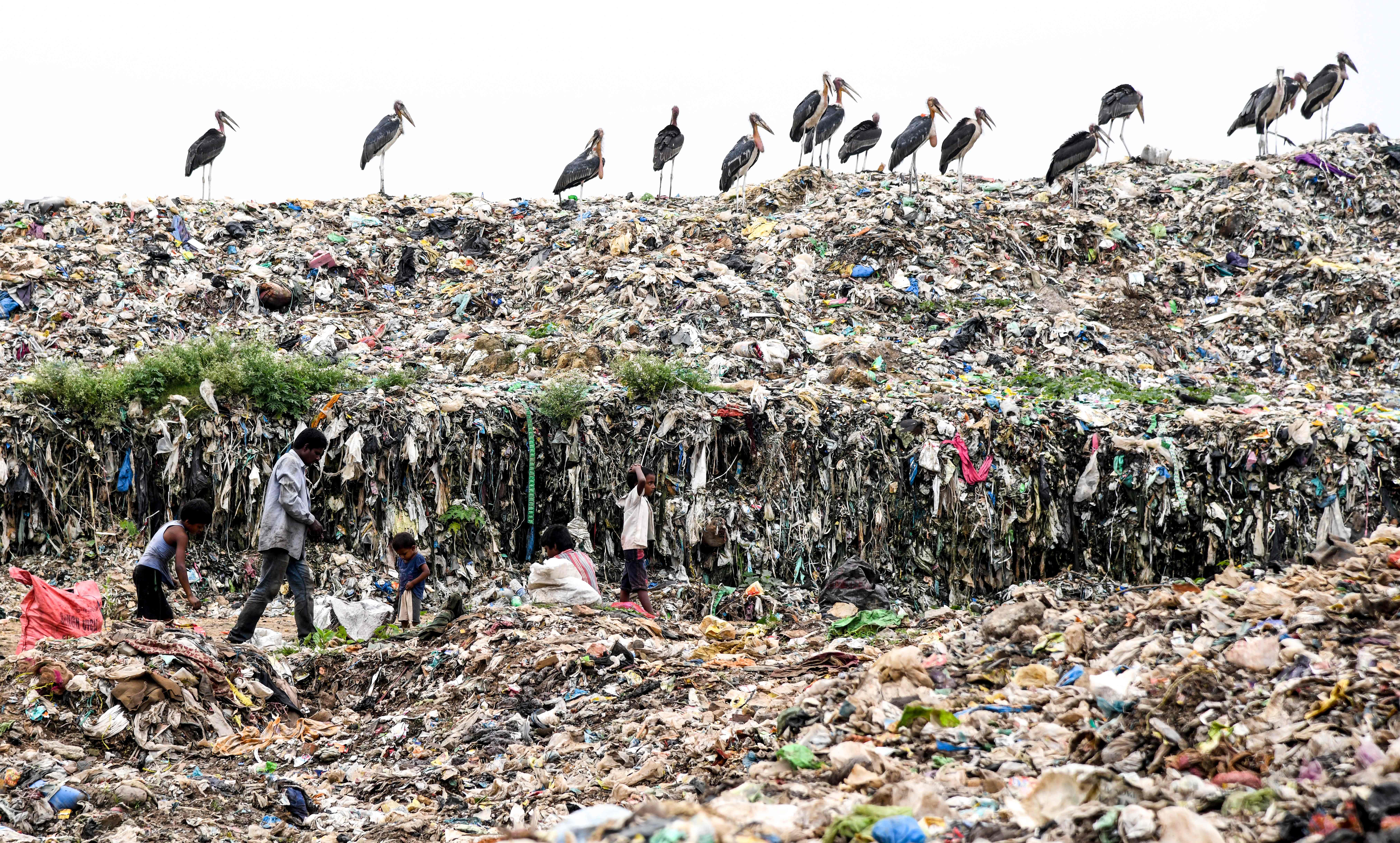World’s marginalised communities bearing brunt of plastic pollution, says UN
Communities living close by to plastic production and waste sites can be exposed to toxic chemicals, writes environment correspondent Daisy Dunne


From the moment plastics are first produced to the point they are discarded as waste, it is poor and minority communities that bear the brunt of their pollution, a new UN report says.
The world produced 8.3 billion tonnes of new plastic from 1950 to 2015, according to the report. If this rate of growth continues unabated, the world will have produced 34bn tonnes of plastic by 2025 – enough to cover every foot of coastline across the world with 100 plastic bags.
The assessment, led by the UN Environment Programme, draws on examples from around the world to illustrate how pollution from plastics is affecting vulnerable people.
“Plastic pollution is a social justice issue,” said Marce Gutiérrez-Graudiņš, report co-author and founder of Azul, a grassroots environmental justice group which also contributed to the new assessment.
“Current efforts to manage and decrease plastic pollution are inadequate to address the full scope of problems it entails.”
Read more:
- Can Saudi Arabia, the world’s second largest oil producer, become a global force tackling the climate crisis?
- Majority of economists say benefits of reaching net zero by 2050 outweigh costs, survey finds
- Greta Thunberg takes aim at global trade emissions in Suez Canal meme
- How is bitcoin fuelling climate change?
“Disparate impacts on communities affected by plastic, at every point from production to waste, should make environmental justice a customary consideration within the marine conservation field.”
Low-income and minority groups living close to plastic production sites can be exposed to toxic chemicals through air pollution and contaminated water supplies, the report says.
Almost all plastics are produced from petrochemicals. The report notes that communities living close to petrochemical plants can face disproportionate health impacts as a result of pollution.
One example of such a community can be found in Reserve, a predominantly low-income Black town of 10,000 people in Louisiana. The town is home to a petrochemicals plant, which is driving pollution linked to adverse health impacts in the local community, according to the report.
“The town, located in an area commonly known as ‘Cancer Alley’, has a cancer risk almost 50 times the national average, as well as the highest risk in the country to develop cancer from air pollution,” the report says.
The authors add that discarded plastic is often exported from wealthy regions to developing countries, where it is sorted by low-income waste pickers facing a litany of health impacts.
India is home to nearly two million waste pickers, the report says, which can be exposed to health hazards related to their work.
“Due to the informal nature of their work, waste pickers are often more exposed than their formally employed counterparts in the waste management sector to occupational hazards,” the report says.
“They often report the highest incidence of work-related injury, such as cuts, though they may be less knowledgeable about indirect health effects of their work, such as respiratory illness and infection, than formal waste collectors.”

Eventually, most plastic ends up in oceans or washed up on beaches – threatening the livelihoods of subsistence fishing communities and those relying on tourism for an income, it adds.
The report makes a number of recommendations for how governments around the world can address the impacts of plastic pollution on the world’s most vulnerable.
These recommendations include bans on single-use plastic, better monitoring of plastic waste and its health impacts, and more incentives to encourage people to reduce their plastic use.
“Environmental justice means educating those on the frontlines of plastic pollution about its risks, including them in decisions about its production, use, and disposal, and ensuring their access to a credible judicial system,” said Inger Andersen, executive director of the UN Environment Programme.
Join our commenting forum
Join thought-provoking conversations, follow other Independent readers and see their replies
0Comments